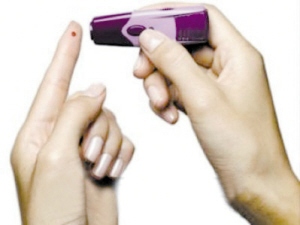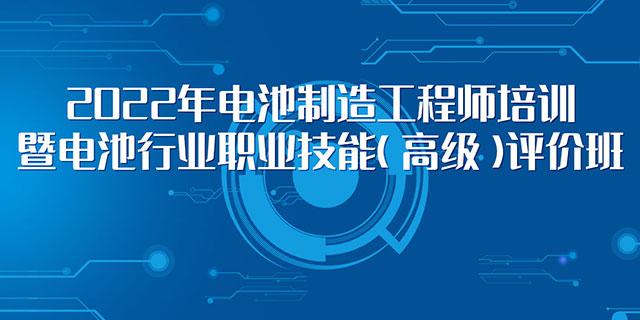新型传感器有望利用唾液检测血糖
时间:2014-07-17 13:18来源:cbcu 作者:日 光
点击:
次

Brown大学科学家们创造了新的传感器,成功地使用人工唾液测试其测量糖浓度的功效。新的传感器由光源、金属以及一个当暴露于血糖,会改变颜色的特殊酶组成。
众所周知,糖尿病患者需要通过刺破手指采血来检查血糖,并且每天需要重复多次。因此,研究人员正在寻找另一种测试血糖的可能性,结果发现唾液是可以用于测量血糖的另一种体液。
但是该传感器目前无法得到广泛使用,因为美国FDA批准过程将需要很长的时间,我们必须确认这个装置如何可以准确用于检测人类血糖,尤其对于那些大吃大喝的患者,因为这些患者唾液中含有大量物质,这很可能会污染测试样品,影响测试结果。
研究结果发表在Nanophotonics杂志上。新型传感器采用一种光源和金属表面,其中金属表面能干扰光击中(接触)样品的方向,光“读取”特异性酶如何对唾液存在的糖作出反应,以测量样品中糖的浓度。
研究人员利用人工唾液测试了该传感器,看看它如何工作(人工唾液没有实际唾液中的潜在混合物,例如口腔中食品或饮料会改变测试结果)。结果发现该传感器能够检测血糖水平,并且精确度很好。
Palmore说,下一步是使该设备便于携带,还需要利用真正的唾液测试传感器,同时找到便宜的光源。此外在测试唾液样品前,还需要某种冲洗剂洗漱测试者的口腔。比如漱口剂就可以去除口腔残留食物或其他可能影响血糖读数的污染物。
详细英文报道:
A new type of sensor for people with diabetes is being developed to measure
sugar levels in the body using saliva instead of blood, researchers report.
Scientists at Brown University in Providence, R.I., created the sensor and
successfully tested it using artificial saliva. It uses light, metal and a special
enzyme that changes color when exposed to blood sugar.
"Everybody knows that diabetics have to prick their fingers to draw blood to
check their blood sugar and then respond to that information. And they have to
do that multiple times a day," said study co-author Tayhas Palmore, a professor
of engineering, chemistry and medical science at Brown.
"We're looking for another possibility, and realized that saliva is another bodily
fluid that could be measured," Palmore said.
This idea is a welcome one, said Dr. Joel Zonszein, director of the Clinical
Diabetes Center at Montefiore Medical Center in New York City. "People are always
trying to come up with new ideas of how to measure blood sugar without pricking
the fingers."
The sensor won't be available anytime soon, however. "The process of [U.S. Food
and Drug Administration] approval will take a long time, and we have to see how
accurate this device is in humans, especially humans who are eating and drinking,
which will possibly contaminate the sample," Zonszein said.
Findings from the study, which received funding from the National Science
Foundation, were published recently in the journal Nanophotonics.
To check their blood sugar—or glucose—levels, people with diabetes—especially
those who need insulin—must prick one of their fingers to draw a drop of blood. The
blood is put on a test strip that goes into a blood sugar meter. They are supposed to
repeat this procedure four times a day, according to the American Diabetes Association.
The results of the blood sugar tests guide treatment, with diabetes patients often
adjusting medication or insulin levels based on the test reading to maintain
acceptable glucose levels.
The Brown researchers realized that saliva also contains glucose, though in much
lower quantities.
The new device uses light and a metal surface that interferes with the way light hits
a sample, Palmore said. The light "reads" how a special enzyme reacts to the
presence of sugar in saliva to measure the concentration of sugar in a sample.
The researchers tested the sensor on artificial saliva to see how well it works
without the potential complications found in real saliva. For example, food or drinks
could alter the results. The sensor was able to detect sugar levels with high accuracy,
they said.
Palmore said the next step is to make the device portable, hopefully small enough to
fit in your hand. They also need to test it on real saliva, and find inexpensive light sources.
Palmore said the researchers are also working on ways to measure insulin levels in the
body.
Some sort of rinse for use before testing a saliva sample is also needed. A mouthwash
could remove food or other contaminants that might affect the glucose reading, according
to Palmore.
"Just because there is an established way of measuring blood sugar, doesn't mean it's
the only way," said Palmore. "This is a priority area of research for many people. There's
some hope that you may not have to prick yourself every couple of hours."
Zonszein added that the idea of searching for alternatives is a good one. "But to apply
that from the lab to human clinical trials is still very far away," he said.
(责任编辑:admin)
免责声明:本文仅代表作者个人观点,与中国电池联盟无关。其原创性以及文中陈述文字和内容未经本网证实,对本文以及其中全部或者部分内容、文字的真实性、完整性、及时性本站不作任何保证或承诺,请读者仅作参考,并请自行核实相关内容。
凡本网注明 “来源:XXX(非中国电池联盟)”的作品,均转载自其它媒体,转载目的在于传递更多信息,并不代表本网赞同其观点和对其真实性负责。
如因作品内容、版权和其它问题需要同本网联系的,请在一周内进行,以便我们及时处理。
QQ:503204601
邮箱:cbcu@cbcu.com.cn
凡本网注明 “来源:XXX(非中国电池联盟)”的作品,均转载自其它媒体,转载目的在于传递更多信息,并不代表本网赞同其观点和对其真实性负责。
如因作品内容、版权和其它问题需要同本网联系的,请在一周内进行,以便我们及时处理。
QQ:503204601
邮箱:cbcu@cbcu.com.cn
猜你喜欢
-
商用无人机用新型锂电池问世
2017-01-20 16:55 -
续航提高两倍 韩国光科院研发新型锂电池
2017-01-13 15:26 -
新发现:新型太阳能电池/织物/滴电流
2016-12-06 17:21 -
韩研发新型隔离膜 电池迈向下一代
2016-08-02 14:18 -
锂电池短期供需平衡,下半年有望高速增长
2016-05-19 13:53 -
新型硅阳极可取代石墨 提升锂电池容量和寿命
2015-10-28 10:44 -
中科大发现硒硫固溶体——新型锂硫电池正极材料
2015-10-27 15:54 -
新型制冷涂料可提高太阳能电池效率
2015-09-23 14:10 -
新型电池能助可穿戴设备融入大众生活
2015-09-06 11:11 -
新型透明太阳能玻璃电池 让窗户为大楼供电
2015-08-13 13:29
|
|
|
|
|
|
|
|
|
|
|
|
|
|
|
专题
相关新闻
-
商用无人机用新型锂电池问世
2017-01-20 16:55 -
续航提高两倍 韩国光科院研发新型锂电池
2017-01-13 15:26 -
新发现:新型太阳能电池/织物/滴电流
2016-12-06 17:21 -
韩研发新型隔离膜 电池迈向下一代
2016-08-02 14:18 -
锂电池短期供需平衡,下半年有望高速增长
2016-05-19 13:53 -
新型硅阳极可取代石墨 提升锂电池容量和寿命
2015-10-28 10:44 -
中科大发现硒硫固溶体——新型锂硫电池正极材料
2015-10-27 15:54 -
新型制冷涂料可提高太阳能电池效率
2015-09-23 14:10
本月热点
-
2020年锂电池行业研究报告
2021-05-11 11:24 -
突发|深圳一锂电企业停止经营、解散员工!
2021-05-11 10:02 -
4月我国动力电池装车量同比上升134.0%
2021-05-13 08:26 -
如何看待Pack内铁锂和三元混用
2021-06-01 09:25 -
可充电中性锌空气电池:进展,挑战和未来
2021-05-19 10:59 -
揭开赣锋锂业的家底
2021-06-03 09:46 -
“电池荒”来袭,生产纯电动汽车的车企要被卡脖子了?
2021-06-01 21:22 -
关于征集《锂离子电池用连续式真空干燥系统技术规范》等两项行业标准的函)征求意见程序
2021-05-31 22:53
 企业微信号
企业微信号 微信公众号
微信公众号









